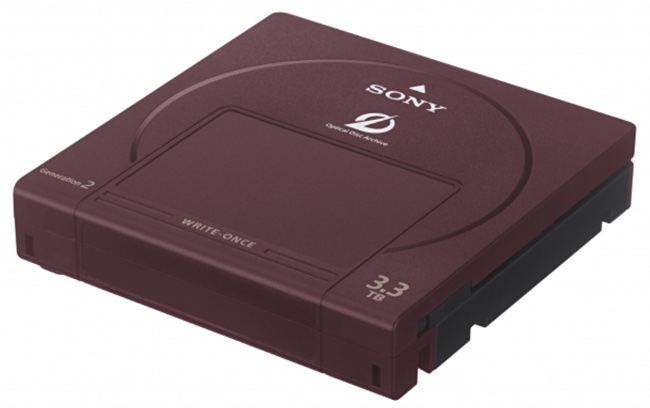Optical disk demand will sky-rocket in 2020 as cloud computing centres come to realise optical disk archives are cheaper and last longer than tape or disk archives. So says Gordon Yeh, chairman and CEO of Ritek, an optical disk maker.
In an interview with Digitimes, he cites the 2018 Cisco Global Cloud Index, which forecasts annual global cloud IP traffic will grow from 6 zettabytes (6,000 EB) in 2016 to 19.5 ZB by the end of 2021. Data centre storage growth will almost quadruple to 2.6 ZB during the same period, the Cisco study reports. We were unable to find any specific mention of archival storage growth in the study, but we can safely infer that this will grow at a similar rate.
According to Yeh, 70-80 per cent of cloud data centres use tape to store data, but some, like Facebook, are already starting to use optical disks.
He says optical disk unit storage cost will fall to the same level as tape and, one- two years later, disk drives. This will fuel a big increase in demand for optical diska in 2020. Yeh claims optical disk storage needs less stringent temperature and humidity control than tape. Also it does not require the powered standby rotation of archive storage hard disk drive platters.
Optical magnifying glass
This sounds like Yeh is talking standard big-up-the-company’s prospects. Or maybe he knows something about optical disk formats and capacities that we don’t.
Optical disk cartridges hold much less data than tape cartridges and transfer data more slowly. These disadvantages could outweigh the minor data centre environment and power usage advantages of optical disks.
For example, Sony’s gen 2 Optical Disk Archive Cartridge has a 3.3TB write-only capacity and 1Gbit/s write, 2Gbit/s read transfer rates. That roughly equates to 128MB/sec write and 256MB/sec read.

Current LTO-8 tapes have a 12TB raw capacity, 30TB compressed and 360MB/sec raw/800MB/sec compressed transfer rate.
LTO-9 in 2020 will have a planned 24TB raws/60TB compressed capacity and transfer data at 708MB/sec raw.







